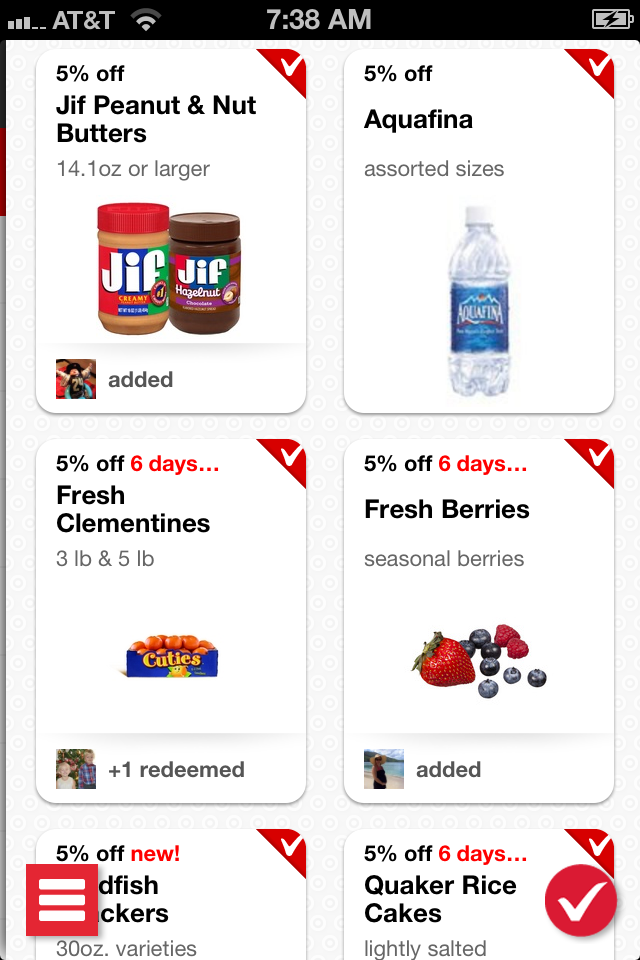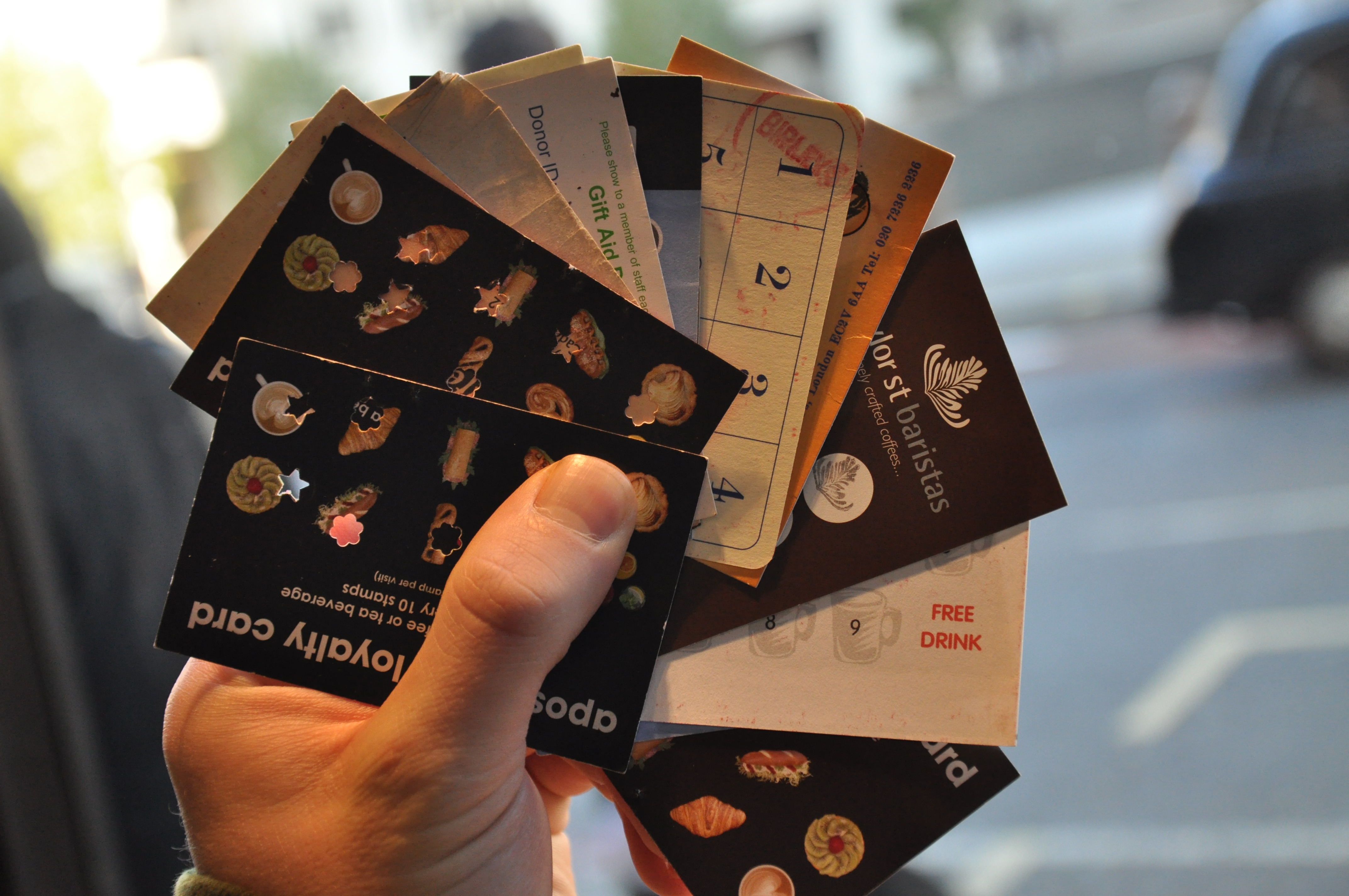How it works
When you first open the app you start off with a certain number of slots to put "offers" in. You are able to search through the variety of offers and add them to one of your slots. The catch is that you can only have as many offers as you have space for. While there can be a wide range of items depending on the day you are looking, some of them can be rather narrow (buy this specific color or this specific size). However, the trade off is value for selection. The branded items tend to be more specific but much larger discounts (up to 50% off) while the more generic things like Target-brand milk or eggs, are much more open but have smaller savings (ususally 5%).Once you have collected all of the offers you want, you go back to your home screen. The app generates your own personal bar code that the cashier will scan at the register. This is cool because it saves you the trouble of scanning all the individual offers. Each offer in your slots is all tied back to this one bar code so you have just the one code to scan no matter what your offers are or how many you have.
After the cashier scans the code, the dollars come right off of the actual transaction while it happens. Being able to do this in real time is something that most of the other apps cannot do. It is convenient, but the only reason they can do it is the ability to tie so directly into their sales software. This means that this same kind of "real time" savings is almost impossible for any app that crosses over retailers. Since this app is just for Target, it's convenient but is obviously limited in terms of usage. Every time you use an offer, the amount you save will be added to your total so you can see how much you have saved over time. As you save, you earn more slots for offers and you earn badges as you reach certain levels.
The Good
There are definitely thinks I like about Cartwheel and it is probably my most used savings app. I like that there are certain items that are huge discounts. I have been using it for six months and saved about $500 but that is because I caught Rosetta Stone and a smart watch for 50% off. If you are an opportunist, these can be great.I also like that everything is on one bar code. While you still need to put the time in to find the offers, you can at least easily redeem them (if you can find the items and remember to scan). This is definitely a step in the right direction from coupons. On that same note, having it on your phone is nice so you can search, select, or change the offers right in the store (while not being convenient, it is useful)
The Bad
There are also things I do not like about the app. First, the relevance of offers is sometimes just not there. I see a ton of items that I'm guessing are going to be clearance soon and this is a last chance to move them. These are things like kids movies or baby food. While many customers do want these, I'd expect my app to understand the things I buy a bit better.The amount of effort need to find offer is also something to consider. Here is how my usual trip goes:
-10 mins filling slots with offers (say 15 slots)
-30 min finding the specific items in-store
-half the items are out of stock or I cannot find them
-15 min in-store looking like an idiot on my phone trying to find different offers
-15 min finding the new items
-Cashier won't remind you to use Cartwheel so I forget to scan about 25% of the time
As you can see, it can easily turn into a lot of time. I have not had a trip yet where I was able to easily and quickly find the items that corresponded with the offers I had selected. The only time it goes quick is if you spot something ahead of time and go in for that one specific item, like I did with this G Watch.
In Conclusion
Thanks for reading!
Chris@Scannibal


















